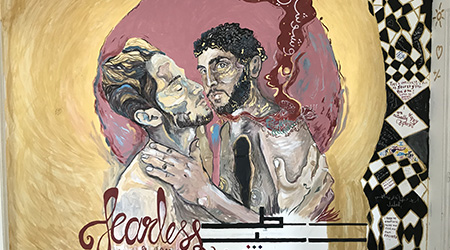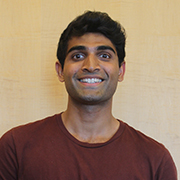
Note: Key details have been altered slightly to protect the confidentiality of the individual represented in this story.
“Sorry, I have to take this — it’s my daughter!” Rawad tells me. We are in the community center focused on HIV prevention among young LGBTQ+ men, which I have been volunteering at during my time in Beirut while conducting research for my master’s capstone project. He is video chatting with a sweet, dark-haired toddler enthralled by the sight of her father: baba, baba, baba, “dad, dad, dad,” she repeats. Behind her is a woman, who I assume is the mother of the child. Rawad is ecstatic to see his little girl, and as they converse I hear that it’s her 3rd birthday.
After the phone call, he tells me he hasn’t seen his daughter in more than 8 months. He’s a refugee in Lebanon, and she is still in Iraq. “I was outed. My parents and community disowned me. My wife left me and my daughter so she’s staying with my sister.”

His story was starting to come together. Rawad escaped his community in Iraq after this incident and the persecution he felt as a queer man. He came to Lebanon to start a new life and to look for future opportunities. Because he is not a citizen, he is not easily able to find work, as is the case with the many Syrian, Iraqi and Palestinian refugees currently residing in Lebanon.
I ask how he spends his days and he tells me they mostly consist of waiting for his asylum application to be processed, watching movies, coming to the community center and, lately, sleeping a lot since he has been fasting for Ramadan. However, he explains to me that although he is in limbo, he’s happy to be in Beirut, and he’s very hopeful for the future.
“I feel like a teenager again here; my life is completely different. I finally feel like myself.”
As we speak, he compliments me on my Arabic, and I ask him how he learned English. He never took any lessons but rather taught himself from television, movies and music. Rawad was a musician in his spare time, and he tells me he aims to work in sound mixing and DJing, inshallah.
While Rawad was sharing his experience with me, I was thinking about why he was so open with me. Upon reflection, I believe it was because he felt safe and comfortable, and because he saw me as a trusted friend. I see the value of my volunteer work in a new light: this space isn’t just meant for HIV prevention; this is a space to foster relationship and community building, and to instill a sense of belonging—facets of health interventions that are, perhaps, more tangibly significant in the lives of community members.
Rawad and other members of the community attend the center because they enjoy the people and they are having fun, not necessarily because they are seeking an HIV intervention. I am reminded of how important community engagement and community building is in global health interventions, and that successful interventions are driven by community members. And this is what I see here.
Afterwards, Rawad mentions that he recently received a call from the local United Nations High Commissioner for Refugees office saying that his asylum application to Canada was approved, and he and his daughter would be moving there after all the paperwork was done. He says he would rather go to Vancouver than Toronto because it would be less cold for his daughter, and that I would have to visit him when he made it to the west coast. And, he looks absolutely carefree.